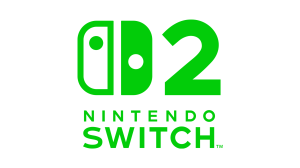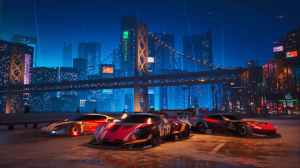
When the final issue of The Paybacks was released by Dark Horse, it read like a cliffhanger rather than a finale. Writers Donny Cates and Eliot Rahal and artist Geoff Shaw never intended for the series to end at issue number 4 either. Just as it appeared that the story of The Paybacks might never be completed though, these creators and their story of superpowered repo men working for a mysterious stranger found a new home at Heavy Metal.
Videos by ComicBook.com
It was only recently announced that The Paybacks will resume later this year picking up directly where 4 left readers hanging. This is both an exciting announcement for fans of the series and a great opportunity for those who missed out initially to jump aboard. The Paybacks is one of the funniest and strangest takes on the superhero genre in comics today and we were lucky enough to speak with Cates about where it might go next.
The Paybacks is officially returning. What got Heavy Metal interested in continuing the story?
Donny Cates: They were fans of it when it first started coming out. Before The Paybacks started coming out I sent them a PDF of it and I don’t think they understood I was showing it to them as our new book. I think they thought it was a pitch and someone e-mailed me back saying they’d be happy to do it and that it looked great. I had to apologize and explain this is a Dark Horse thing.
So they liked it and have been fans of it. When the chance came up and we made a decision that we wanted to keep telling the story, we brought it to Jeremy Atkins, the marketing guy at Heavy Metal, and within a week we had it in the catalog.
It’s really been great for us over there. The freedom and support has been crazy.
It feels like they’re interested in back passion projects and making visions that appeal to them happen.
Cates: The creator-owned side of their company is still very new. I think they’re still very interested in getting people they know can produce cool stories and cutting them loose. Interceptor, the last book I did with Heavy Metal, was approved based on the art alone. I asked their CEO if he wanted me to send him a pitch document or anything else, and I got an email I had never seen in this industry before where he said “I’ve read all of your stuff. I trust you.”
The first time he ever heard what the story was about was at San Diego Comic-Con when I was on a panel with him and Grant Morrison. Grant Morrison is two seats down from me while I’m hogging the mic and telling everyone the story. This is my favorite moment in comics so far. Grant, who had been relatively quiet the whole panel leaned into the mic and said “That sounds fuckin’ great! “
It’s the best thing that has ever happened to me.
It’s one helluva compliment.
Cates: Right? I’ll take it. I wish I could write his Scottish brogue out and put it on a cover as a blurb.

I think that passion project element shows on both The Paybacks and Interceptor because they’re idea-heavy books where you guys are leaving it all on those pages.
Cates: It’s bananas, y’know? Those are sometimes stories where a lot of companies out there who might not want to do them, and for good marketing reasons I completely understand, especially with something like Ghost Fleet. Buzzkill was very easy to distill down into a tagline. It’s a guy who gets powers from drinking alcohol and doing drugs, then goes into AA. Ghost Fleet was more esoteric because it had that big surprise ending. You can’t just say it’s about a man hauling the horseman Death of the Apocalypse across the country in the back of a big rig.
With Interceptor and The Paybacks, to a certain degree, you get to a point where you just want to go to a company and say “Trust me. I got this. I know what this story is about.” It’s tough for me to distill into a soundbite what it’s about. Interceptor is totally bananas and I pitched it to a lot of other companies. I got a greenlight from a company, but their note back asked if we could get rid of the vampires. That’s just a no. It’s kind of the whole point of the book. I brought it to Heavy Metal and their response was “Sure, okay.. Let’s do it.”
The Paybacks sneaks its complexity in through the backdoor. It has a nice, easy elevator pitch, but once you start reading you quickly realize it has a whole lot more going on than superpowered repo men.
Cates: It got bandied around a lot as a parody and that’s a word that never came up in our conversations until critics started calling it that.
Parody implies some level of meanness. The Paybacks is a love letter.
Cates: It’s a love letter! It’s everything we love about superhero comics. We got it in our heads that we’re probably still four or five years away from being let loose on a Marvel or DC book, so we decided to build our own. Buzzkill already had this rich superhero world in the background and we could go play in that world. It’s a good hook, but without the other stuff it just becomes about what are we going to repo next week and that gets old.
The thing I like about The Paybacks is that in mainstream superhero comics you get a first act and then you’re perpetually in the second act. Spider-Man is always in his second act forever. The thing I like about The Paybacks and Buzzkill is that you’re going to get that third act.
From page one, panel one all of these superheroes have already lost. It’s over. How do you carry on and become a hero again when you’re a slave to the system?
When you have a character that can’t reach an ending, that’s trapped in the second act, stories stop being character-driven too. It’s plot-driven. That’s also why I don’t think it makes sense to call The Paybacks a parody because everyone of these characters is nuanced and defined by personal failings and hidden motives.
Cates: People pointed out the similarities, like we have a Batman-type guy and a Liefeld-type guy. But the idea is they’re failed. Night Knight failed because we already have a Batman. You’re schtick wasn’t going to work out stupid because we already got one of those and he’s successful. When you look at The Paybacks there are already more successful versions of whatever they are.
Night Knight as an example only has surface level similarities to Batman. He’s not Bruce Wayne at all.
Cates: And everyone on the team hates him. He’s just not as good, and he has a unicorn. It never made it into the book because you try to ride certain thematic lines, but there was a whole arc about why he became Night Knight. It’s so dark. The basic idea was something happened to him when he was a little boy that shouldn’t happen to little boys. It happened in the dark. From that moment on he was going to defend the weak and the sleeping so they won’t be awoken by something dangerous. He protects the night.
I don’t know if that makes him more likable, but it makes him a whole lot more sympathetic.
Cates: It’s really dark. If you look closely, any time you see him in his bedroom at night it’s all lit. His lights are on all the time and he’s afraid of the dark all of the time. His whole mission in life is to not let that happen to anyone else.
Are you hoping you get a chance to explore these sorts of stories now that there is going to be more of The Paybacks, or is there a hard ending coming down the pipe?
Cates: We’re going to try and do a Hellboy model with mini-series. This next one is very finite, and self contained. It has a definite beginning and end but obviously keeps things open for more stories, you know? It’s funny because, the way issue four ended it’s this crazy cliffhanger where all is revealed…and i promise it wasn’t meant to be a big cliffhanger of an ending, we were counting on that next issue coming out! So…sorry everyone!

The final issue at Dark Horse, as an ending, reads like a middle finger to the audience.
Cates: Yeah, its pretty self contained, but the ending only makes perfect sense if you get to read the next issue 30 days later though.
We always structured arc two as an introduction. In issue four they gain The Matador, so arc 2 was always going to start with The Matador getting a tour of the van. It’s set up perfectly for a new beginning. It starts with him in a movie theater and Doctor Blacq is on screen like the classic 1960s “Welcome to the World of Tomorrow” film reels. You get to meet Jacob Destruction’s parents in it. It lends itself very nicely to a new beginning.
That definitely seems like a moment of good fortune.
Cates: It definitely worked out. We’re really excited about it. It’ll be a four-issue mini-series, but really five since the last issue is like 40 pages long. It wraps up the second arc really. We have much more planned. Like, two years worth planned. But we’ll see how this new arc goes first. But yeah, we have some bananas stuff planned, There’s a big spacey cosmic thing. Anyone who remembers Panteradactyl and likes “The Dark Phoenix Saga will dig it. It’s fun!
Sounds awesome.
Cates: We’re really excited about it and to bring it back. It’s very rare that series get to jump from their first publisher and the fact that TWO publishers thought this wacky idea was cool enough to put their name on it is so cool. We are very happy to get to continue this tale! I hope you all love it and order a million copies.
Chase Magnett is a freelance journalist, critic, and editor working with comics, film, and television. He has been hooked on comics since he picked an issue of Suicide Squad out of a back issue bin fifteen years ago. When Chase is not working with comics in some way he spends his time rooting for the San Francisco 49ers and grilling. He currently contributes to ComicBook.com and other outlets.








